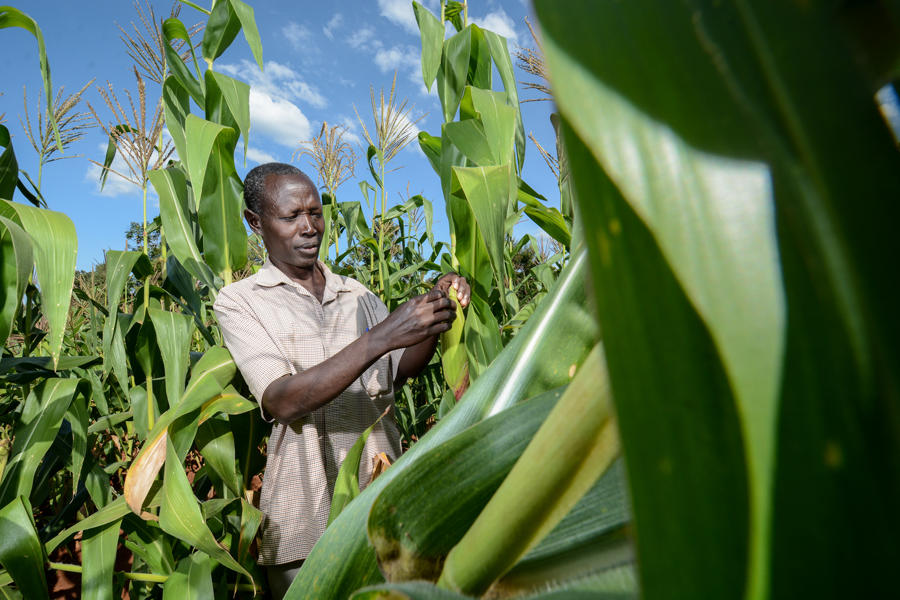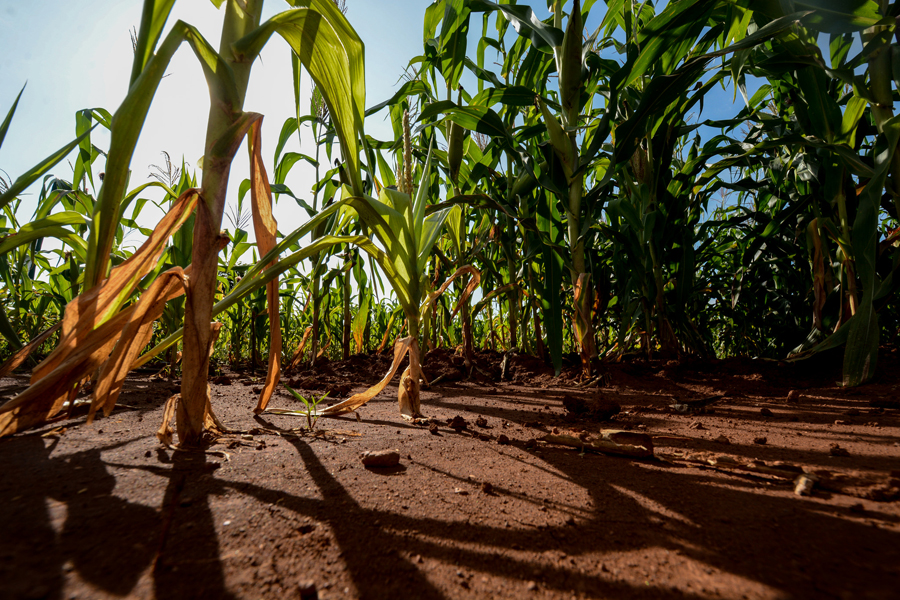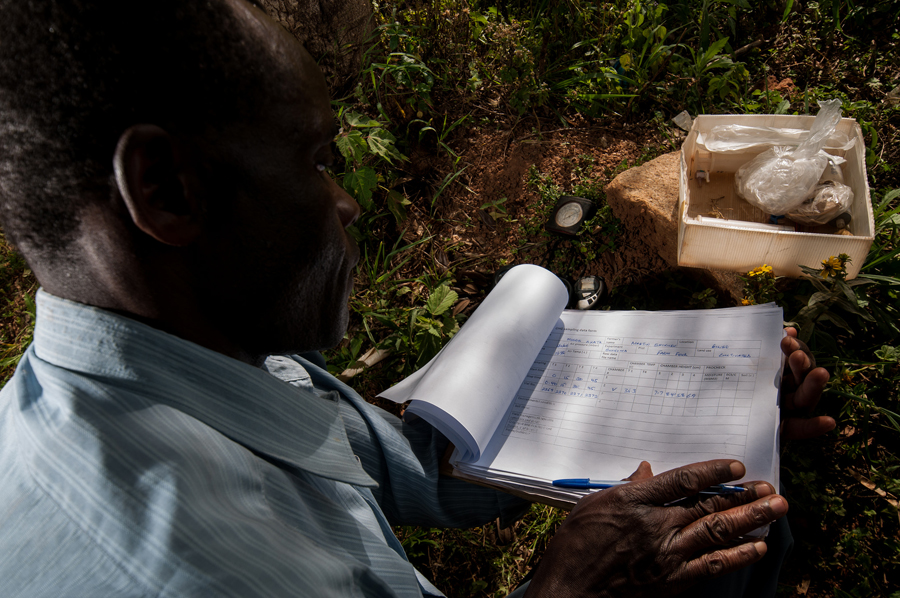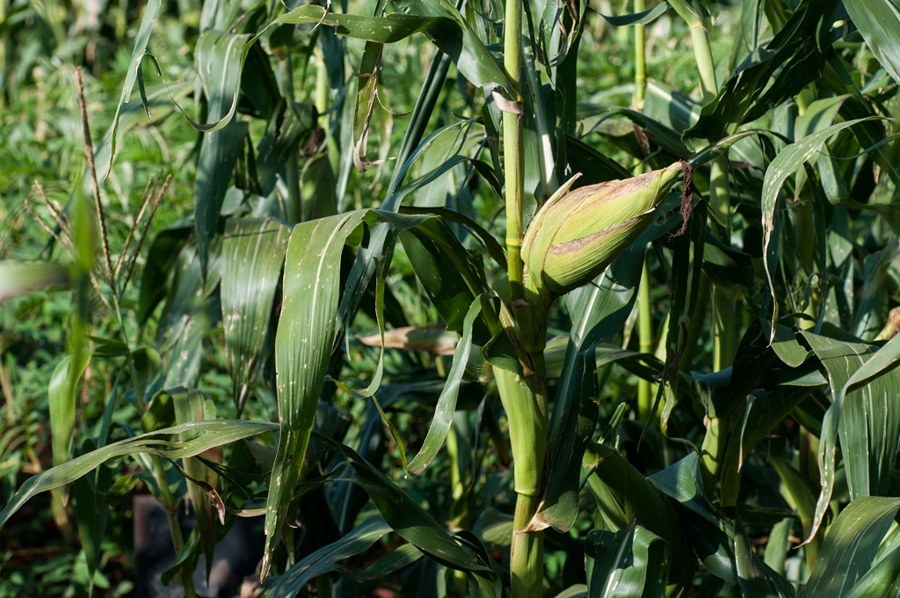New study shows micro-nutrients can boost African crop yields by 25 percent

A new study shows that adding tiny, ‘micro’ amounts of certain nutrients to the soil, could boost crop yields in Africa by up to 25 percent.
Usually, plants need macronutrients to grow properly. These nutrients – nitrogen, potassium and phosphorous – are needed in large amounts, usually added to soil in the form of fertilizer.
Macronutrients can already almost double maize yields in Africa, from the 1.5 tons per hectare achieved on unfertilized fields, according to the literature studied. But what this research shows is that, by adding micronutrients as well – nutrients needed in micro-quantities like iron or zinc – yields could go up an extra 25 percent on top of that.
“That’s a big deal: an extra seven or eight bags of maize, translating into extra food on the table, or money in the pocket,” said Job Kihara, a soil fertility expert in CIAT’s Nairobi office and lead author of the paper published in Agronomy for Sustainable Development.
“Our results show plainly that the lack of micronutrients in Africa’s soils is indeed holding crop productivity back. Farmers are getting a raw deal because their soils are not delivering what they could if they were managed better, by applying the right blend of nutrients.”
Degraded soils producing less food
The findings suggest that micronutrients are more critical for boosting yields in Africa than previously realized. The authors, who mined data from 40 peer-reviewed papers, say evidence that some soils in Africa barely respond to fertilizers has mounted in the last decade.
Crops are becoming less able to absorb vital nutrients to grow, due to soil erosion or degradation – so adding blends of micro and macro nutrients is one way to restore the balance. But more research is needed to find out how, and where, the right nutrients can be applied to increase yields.
“Africa has vast ecological, landscape and climatic variation,” continued Kihara. “Making up a comprehensive picture of soil health is a massive task that hasn’t yet been undertaken in Africa.” He noted that more research is needed to find out how crops respond to different fertilizer blends in different areas.
According to Dr. Generose Nziguheba a senior scientist at the International Institute for Tropical Agriculture who contributed to the publication, adding small quantities of micronutrients to current macronutrient fertilizers should have minimal cost implications, yet big yield benefits.
Just add micronutrients… or not
But further research is needed to test fertilizer blends, so farmers can buy tailored nutrients to boost deficiencies in a given area. This is especially important because, if a nutrient is already present in sufficient quantities, adding more could have a negative effect on the environment and sometimes even on yields.
Co-author and independent consultant, Dr. Gudeta Sileshi, said data gathered from trials was collected from sites with pre-identified nutrient deficiencies common across many parts of Africa.”
Dr. Shamie Zingore, director at the International Plant Nutrition Institute, said: “It’s important for countries to embrace the recommendation from this meta-analysis and blend appropriate fertilizers to realize yield increases over wider areas.”
He added that although some countries like Ethiopia and Mali have already started blending based on the scattered data available to them, the results of this study should encourage others to follow suit urgently, and create a unified response to need for tailored fertilizers.
Effective private sector partnerships to make blended fertilizers available to more farmers will also be key, he said, together with an awareness drive to educate farmers about the importance of choosing the correct fertilizer blend to replace lost nutrients in their soil.
This work was supported by the USAID Feed the Future’s Africa RISING Program under the project: “Transforming key production systems: maize mixed east and southern Africa” and: “Sustainable Intensification of Maize-Legume cropping systems for food security in Eastern and Southern Africa—Phase II (SIMLESA-2).”

Call to action:
- CIAT can leverage Africa-wide partnerships to ensure that more effective fertilizer blends can be tested among a wide range of farmers and partners, and in a range of environments
- We can work with a range of private sector and government partners to research more effective solutions, and with farmers to test them in a participatory environment.


